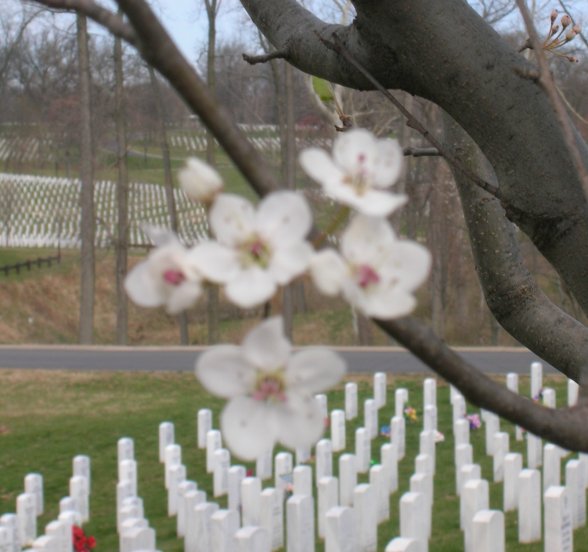
Jefferson Barracks National Cemetery - St. Louis, Missouri
About Keeping Memories Alive
The permanent separation from someone you love is a burden that begs for emotional endurance. Circumstances and the manner of their departure can add to the grief. Death is the final step of life. A death due to old age is easier to accept since it is in the natural order of life, and we realize it is inevitable.
If you step beyond the "natural order of life," endless tragedies surface, some deaths are anticipated, and others come as a total surprise. Survivor of Suicide encountered unique frustrations when making an effort to keep a loved ones' memory alive. I have traveled beyond the second-decade marker, and things have not changed.
I realize that outsiders return to their usual routines, able to pursue their dreams. That route was no longer available to me. It was as though an invisible curtain separated me from my friends. If I focused on the loss, it magnified the aspects of isolation.
Of course, the chit-chat encounters continued, but even they seemed strained. In time a bold female friend from my church, uncomfortable as well, told me that she avoided me. It was solely because she did not know what to say or do. Odd, I did not figure that out myself. Now I realize that avoidance is the easy way around the situation.
With time to internalize these dynamics, I don't know how to change this. The message is . . . it is unreasonable to expect our family and friends to understand our situation when we are hard-pressed to describe it meaningfully. Why should we expect others to understand the situation we find impossible to explain? Expecting others to make meaningful adjustments to something you do not understand is unreasonable. If you live it, you know it. If you don't live it, you only know about it—a huge difference and crucial for survivors to digest.
I have found the select few that appear to be in the moment with you will tire and fade over time. You can maintain contact, but that invisible curtain never seems to lift. Survivors have to default to the reality that others, not knowing, will lead to some level of avoidance. There are just times when I am moody and apparently for no reason. I have to think to smile consciously; it no longer comes naturally.
I often hear about the frustrations survivors experience in trying to keep their loved ones' memory alive.
The following are some thoughts on this topic. Suicide makes everyone uncomfortable. Much of this stems from the fact that the majority have little feel for the actual event or its continuing aftermath. Many care about us (YOU), and fear their delving into the past will make things worse. So the easy route is avoidance.
Over time I have sensed the majority will distance themselves—a sort of passive rejection . . . for lack of a better approach.
I don't think there is a solution to this. We are no longer the same people as when we first became friends. Again, one of the harsh realities we must digest. You can not bring up the topic (of loss or aching) in any way that will not distance you either immediately or gradually over time with the closest of friends.
This dilemma (for me) has been calmed in two ways. Finding things to do or places to go on those special days (birthdays, death dates, or others.) I most frequently go to an open space (by myself) and launch one or more helium balloons. By finding some alternative like this, I am more at ease.
Note this did not work that well in the beginning, but over time it has warmed my soul. BTW, this was not an original idea; I picked it up from other survivors. I have opted over the years not to mention these special days entirely . . . I just keep them to myself.
On the other hand, I have discovered commenting (within family or friends) with something like "Your Mom would have loved this or am sorry she is not here to experience this" will sometimes bring on an affirmation or maybe a complimenting comment." For whatever reason . . . this spontaneity seems to calm others just enough to participate. Over time I find particular family and friends will do the same things? Maybe it is an icebreaker of sorts?
We never forget, and I believe most folks (close to us) know that. But then the masses that we encounter have never experienced Suicide (as we have) and will remain clueless.
You have to guard your emotional wits and strengths for things you can do. If you think you are going to change the world in this regard, you are setting yourself up for discouragement, which can lead to anger or bitterness.
For those in your survivor family . . . this is where sharing becomes productive. We feed off each other . . . either to lift each other up . . . or drag each other down. It is a crazy balance and takes some practice.
No one becomes better sitting around waiting for some special event (which we have no idea what it is) to happen (at least I have never seen it work.)
Communities of face-to-face survivor groups have been the best avenue for me. There are many potential benefits to reading, but there is an absolute power that ramps up when you can hear and see positive changes in fellow survivors. For me, it planted the idea "If they can get better . . . well, maybe I could too."
I will go back and visit old Survivors and am encouraged to see folks from over decades past.
FHAS-About Keeping Memories Alive-Version-06-(Gedited)-03-03.2020